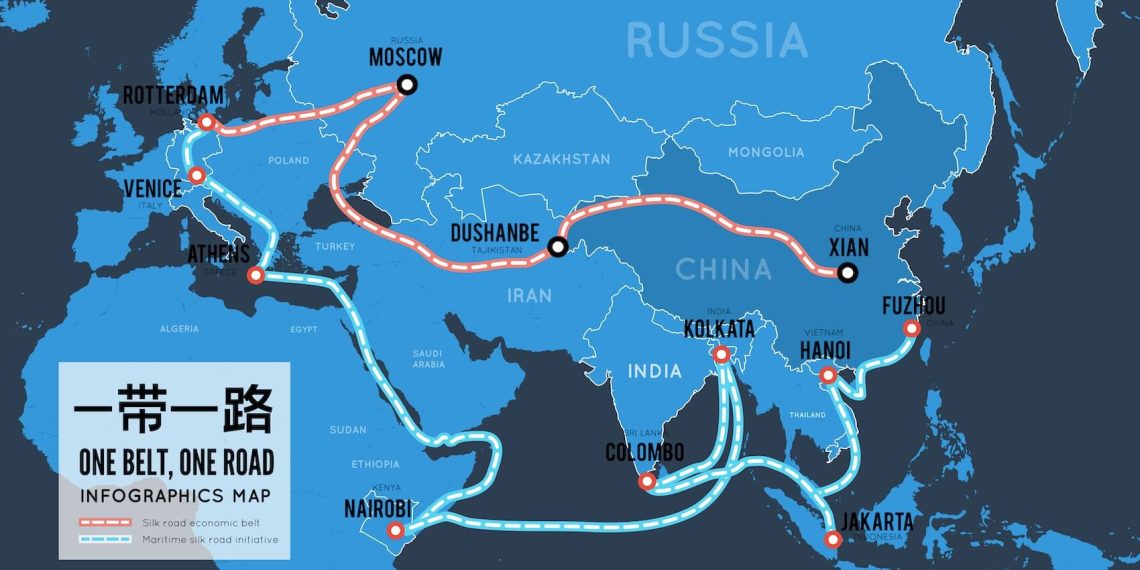Abstract
In a mutually reinforcing context, the rise of multipolarity and the decline of the rules-based liberal multilateral world order have transformed populism from a national phenomenon into one with global dimensions, characterized by transborder transgressiveness. Rooted in nationalist rhetoric that emphasizes independence and sovereignty, this dynamic challenges the norms and values of multilateralism, fuels a vicious cycle of sharp power politics (SPP), and opens new fronts in the competition for national interests. China’s recent political and economic trajectory under President Xi Jinping provides a compelling case for examining the interplay between these factors. Drawing on the evolving theoretical framework of populism and an analysis of the Belt and Road Initiative (BRI), this article argues that Xi Jinping’s strategic framing of SPPs within an appealing populist narrative does not qualify him as a transnational populist leader. Notably, Chinese rhetoric lacks a cohesive ideology, a clearly defined transnational citizenry with shared interests, and a corresponding mechanism for the participatory representation of global citizens.
Keywords: Populism, sharp-power politics, multipolarity, multilateralism, China, governance, development, (in)dependence, global public goods, cooperation.
Introduction
The transformation of global power dynamics, particularly in the post-Cold War era, has exposed vulnerabilities in the Western-dominated liberal multilateral order, leading to a multipolar world (dis)order. This shift has also curtailed the dominance of any single superpower, intensifying competition for influence and resources. This complex landscape has witnessed two notable political phenomena: the global rise of right- and left-wing populism and the adoption of Sharp Power Politics (SPP) by rising powers like Russia and China to enhance their global influence.
The emergence of this geopolitical landscape significantly limits the global cooperation necessary for collective action to effectively secure global public goods. Increasingly characterized by a "negative-sum game," this environment poses deeply troubling implications for the future. It fosters the development of a causal chain in which populism, typically addressed at the national level, transcends borders and amplifies the influence of sharp-power politics.
While populists often portray themselves as champions of the people, challenging the established order on behalf of the masses, SPP co-opts populist rhetoric to serve the interests of authoritarian regimes, ultimately consolidating their power. A plausible transmission mechanism involves the gradual co-option of a functioning, though flawed, rule-based democracy by exclusionary, interest-driven coalitions of established elites. These elites prioritize their class interests at the expense of long-term efficiency, leading to stagnation. Over time, populist leaders exploit systemic vulnerabilities, using their rhetoric to gain power. If they maintain power long enough, they eventually transform the system into a form of authoritarianism, reinforcing this new status quo through sharp-power tactics both domestically and internationally to expand their influence and national interests.
Within this framework, the central aim of this article is to explore the extent to which the concept of “transnational populism” (TNP) can be considered an intermediate stage linking the progression from national-level populism to authoritarianism and, subsequently, to SPP beyond national borders. Following these theoretical discussions, the article also seeks to examine whether the notion of TNP can be inferred from the extensive use of populist rhetoric within China’s SPP framework, specifically in the context of the Belt and Road Initiative (BRI).
The article is organized as follows: The second section explores key theoretical issues, evaluating the existence of a robust concept of transnational populism while examining the intersections, overlaps, and tensions between national populism, transnational populism, and sharp power politics (SPP). The third section builds on these theoretical insights to assess whether China’s foreign policies can be interpreted through the framework of transnational populism within its authoritarian regime. The fourth section connects China’s so-called transnational populism (TNP) to SPP, highlighting their incompatibilities, particularly in the context of the BRI. The final section concludes by summarizing the key findings.


